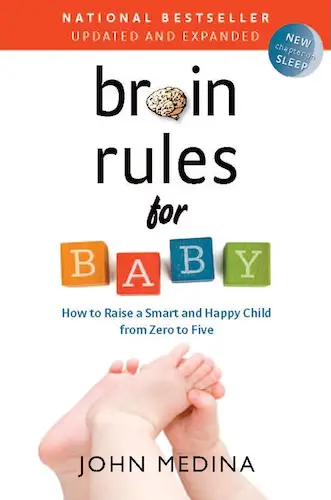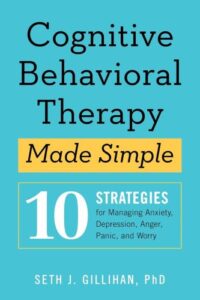
Date Published: October 12, 2010
Brain Rules for Baby
Book Author: John Medina
Summary reviewed by:
Terrence Timmons
Terrence Timmons
Analyst
Bachelor of Arts (BA), University Of California, Santa Barbara 2019
With over 4 years of experience as an analyst. Terrence Timmons is committed to analyzing summaries without compromising on quality.
Brain Rules for Baby: Summary
You won’t believe how easily you can shape a child’s future by understanding just a few powerful insights on brain development. That’s the bold premise behind Brain Rules for Baby by John Medina, a developmental molecular biologist renowned for translating complex neuroscience into accessible advice. Medina’s central thesis is that a child’s cognitive and emotional growth is dramatically influenced by the parents’ behavior, environment, and consistent approach during the early years. By drawing on rigorous studies—from child psychology to molecular biology—he outlines how empathy, secure bonds, and a stable home lead to higher emotional intelligence and future success.
Medina’s credibility stems from decades of scientific research and teaching expertise. In this book, he applies proven theories about stress management, sleep, and language exposure to real-life parenting scenarios. The author contends that empathy, kindness, and relationship quality are not abstract ideals but measurable factors that strengthen young minds. He provides step-by-step methods that parents can adapt, such as praising effort rather than ability, modeling compassion during everyday conflicts, and using clear communication when setting boundaries.
Crucially, Medina avoids sweeping promises and instead offers realistic objectives that any caregiver can achieve. He cites studies demonstrating the importance of controlling stress levels, both in the parent and child, and explains how these small changes can produce substantial long-term benefits, including stronger problem-solving skills and higher levels of creativity. He also touches on practical tips, like how reading for as little as 20 minutes per day and minimizing screen time can encourage beneficial neural connections.
To help apply these insights at home, Medina delivers straightforward exercises, such as keeping a “conflict resolution” journal to identify patterns in behavior and emotions. He also encourages families to collaborate on daily stress reducers, like short mindfulness practices. These user-friendly strategies empower parents to integrate scientific findings into normal routines without feeling overwhelmed or pressured to attain perfection.
Caregivers, educators, and new parents can all benefit from Medina’s blend of scientific depth and practical guidance. He speaks directly to common fears and misconceptions about raising children, allaying anxiety by providing simple, evidence-based approaches that adapt seamlessly into daily life. The emotional payoff is significant: increased closeness with your child and improved developmental outcomes.
Brain Rules for Baby is an indispensable guide for anyone seeking research-backed, down-to-earth parenting advice. The best time to read it is before your child arrives or during those critical early years when habits take root. Medina’s call to action is clear: invest in empathy, harness proven brain science, and watch your child flourish.
Brain Rules for Baby: Genres
Bestsellers
Nonfiction
Parenting
Child Development
Psychology
Emotional Intelligence
Personal Development
Brain Rules for Baby: Themes
Brain Development in Early Childhood – Explains how neural pathways form rapidly during a child’s first years, supported by real-life anecdotes illustrating the impact of secure bonds and emotional safety.
Importance of Empathy – Highlights how empathetic communication helps children develop emotional intelligence and demonstrates how calm interactions foster cooperation.
Stress Management – Describes how chronic stress undercuts healthy brain growth, offering scenarios where controlled stress reduction techniques improve a child’s coping skills.
Language Exposure – Shows how frequent reading and speaking contribute to stronger language acquisition, portraying everyday settings where consistent verbal engagement boosts vocabulary.
Positive Reinforcement – Emphasizes praising effort instead of outcome, depicting how acknowledging perseverance increases motivation and curiosity.
Environment and Consistency – Illustrates how a supportive household environment, marked by predictable routines and reliable support, nurtures a sense of security in children.
Brain Rules for Baby: Methodology
We began by considering our readers’ real interests, especially since one of us is preparing to welcome a newborn. Our diverse team analyzed John Medina’s core ideas—empathy, stress management, and secure environments—before distilling them into a clear format. We used thorough readings and data-based insights to highlight key themes and everyday applications. Throughout this process, we upheld our commitment to accuracy, ensuring each point aligns with the original work. By maintaining rigorous standards in clarity and reliability, we aimed to produce a trustworthy, user-focused overview that empowers parents to integrate science-backed strategies into their daily routines.




